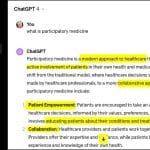As we approach the end of 2012, it is a time to take stock, regarding your finances. This has been a year when the economic climate has been far from upbeat; a year when U.S., spending on health has continued to accelerate as health insurance premiums, higher co-payments and rising deductibles, as well as the rising prices for medical treatment continue to dominate the family budget.
According to the Kaiser Family Foundation’s most recent report on employer-provided insurance, the average family’s premium climbed 4.5 percent this year. That’s more than twice the inflation rate and comes on top of a 9.5 percent increase last year. For those who work for small businesses, the news is even worse. Family premiums increased more than $1,100 this year, an 8 percent increase. It would appear that Obamacare is going to put more of a burden on the average worker’s pocketbook with higher deductibles necessitated by the various mandates that require funding.
There are those who contend that if consumers are paying more for their care they will begin to pay closer attention to their health. Others feel that the way to resolve the high cost and eliminate some of the waste in the health care system is to change the way providers are compensated, from fee for service to a system of block payments. They feel that this would put the onus on providers and patients to work as a team to cut their costs and improve the patient’s health.
There is also a group who argue that for health costs to come down. There must be transparency in health care pricing. This concept is based on the premise that if consumers understand the prices for health services they will shop for the best deals, comparing quality, price and desired outcome.
While all of these initiatives could have a positive impact, we are still living with the reality that health care is the largest line item in a family’s budget these days. There are ways for individuals to potentially save money. The following are suggestions that just might work for you.
1. Understand the specifics of the Affordable Care Act. Enacted in 2009, this bill includes a provision that requires insurers to spend 80% of the premiums they collect from you on health care costs. If they do not meet that threshold, the insurer has to send the customer a rebate.
2. Check to see if your plan covers preventive care without co-payments or deductibles such as mammograms, well baby visits, breast-feeding support, immunizations, etc.
3. Do your homework and find a plan that offers better, cheaper terms by reading the summary of plan benefits and coverage elements in various situations.
4. Shop for cheaper drugs. Check every drug you are prescribed for a generic, which will be cheaper.
5. Be smart about high deductible plans that enable you to save money on premiums and take the risk that you will not need extensive health services, particularly if you keep up with wellness programs and preventive care.
6. Stay within the network of your health insurer. Going out of network is going to cost a lot more money and is not always advisable.
7. Always question the necessity for a test or a procedure. Don’t put off what is really necessary, however, challenge your providers to give you sound reasons when they suggest that you need one of the big-ticket tests such as scans and MRIs.
8. Study all of your medical statements and bills and challenge your insurer if they refuse to pay for a specific treatment or procedure. These decisions do get overturned.
More information on rebates, preventive care deductibles, coverage for tests and procedures and other issues related to health costs can be found at:
As an engaged and empowered patient there are also specific actions that you can personally take to help lower you health care costs including:
1. Take care of yourself. Engage in preventive care and wellness programs.
2. Look at some of your lifestyle habits and think twice about overeating, smoking, excessive use of alcohol or drugs.
3. Set up a flexible spending account which allows you to use pretax money for medical costs not covered by your insurer.
4. Take advantage of free gym memberships and discounted weight management or nutrition classes offered by your health plan
5. Build a long and trusting relationship with a provider who will serve as your gatekeeper and find the best choices for keeping you well and healthy.
Finally, have a healthy New Year!






Recent Comments